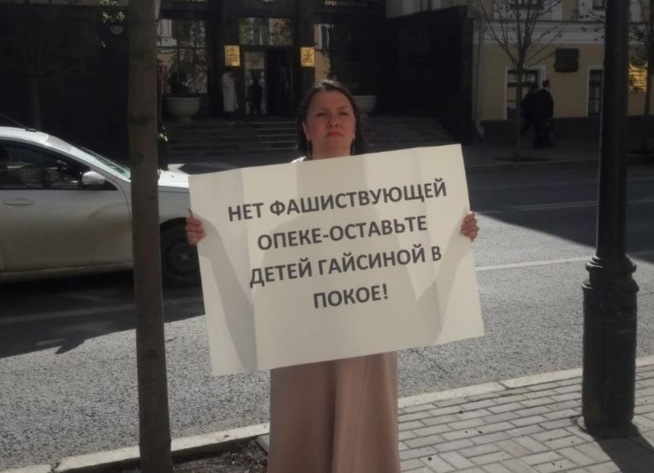A mother from Kazan and the crisis in Russian social services
In Tatarstan, Diljara Gajsina is fighting in court against the intention to take her children away from her because of the unacceptable conditions of the house that the local administration itself assigned to her. This story is emblematic of the progressive deterioration of living conditions in peripheral regions.
Moscow (AsiaNews) - A conflict between a young mother and the local prosecutor's office in Kazan, capital of the Russian republic of Tatarstan, is creating quite a stir in the last few days before a judge.
Officials want to take away the guardianship of her 13-year-old son and 2-year-old daughter from Diljara Gajsina on the basis of unacceptable sanitary conditions in her home. The mother responds that these conditions were caused by the decisions of the administration, and the case seems to reflect a widespread discontent in Russian society, especially in the peripheral regions, due to the progressive deterioration of living conditions and social services.
The flat where Diljara lives alone with her two children is a council flat, obtained after several years of struggle with the Kazan government, a two-room apartment on the top floor of a beehive house of the type known as Leningradka, to which she managed to move after living for a long time in a building site shack. Already during the first clashes with the bureaucracy, unsuccessful attempts were made to 'temporarily' take the children away from the mother.
Before the start of the trial, Gajsina displayed a sign in front of the prosecutor's office building for several days with the words 'No to fascist guardianship - leave my children alone!', repeating the picket at other locations in the city, with the support of passers-by. He also alternated other protests on the placard: 'Prosecutor's office stage intervention to save children from social workers!', 'Against all international agreements, those in power kidnap children from Russian mothers!', 'Prosecutor! In Gajsina, the caregiver takes children away because of the mess they made!", and others like that, with allusions to the 'warlike' language of current times.
The catchphrases further infuriated the law enforcement agencies, which repeatedly stopped and searched Diljara, but without making an arrest, in order to avoid even more striking reactions. The move from the shack to the council house had taken place in December 2021, by decision of the Kazan government office, which often allocates flats slightly more comfortable than the shelters they are in to the needy. On the ninth floor of the Gajsina house, an elderly woman had died a short time earlier, whose body was found after several days, and the flat was infested with an unbearable smell.
The children were only brought in a few days later, first trying to ventilate the two small rooms as much as possible, so that the effect of the heavy chemicals that had been spread after the corpse had been removed would also disappear. And the following day, following heavy rain, water began to seep into the corridor, the storeroom and the rooms, entering through the emergency exit on the roof, which was completely ruined.
The mother then began a long paper battle, writing continuously to all the offices concerned to obtain the minimal repairs necessary for daily life: "we were better off in the shed," says Diljara. In February this year, her insistence led to the convening of a verification commission, after which the lawsuit to take away her child custody began, followed by a row of other control groups, including a team of psychologists. She was offered several minutes to sign, she tore them all up, handing over her reports on the situation and the causes of the obvious problems: 'They treated me like a criminal, when it was obvious that they just wanted to get rid of the problem to avoid reactions from the people around'.
The night before the opening of the court case, Diljara took the children to a 'secret' flat, with the help of her lawyer, Aleksej Zlatkin, out of fear that they would be picked up by the police, thereby influencing the judge's decision. The lawyer explains that 'in recent times, more and more children are being taken away from their families in Russia, also under political pressure', with an 'internal war' parallel to that in Ukraine: mothers who do not bow to the authorities are considered 'enemies of the homeland'.







.png)










